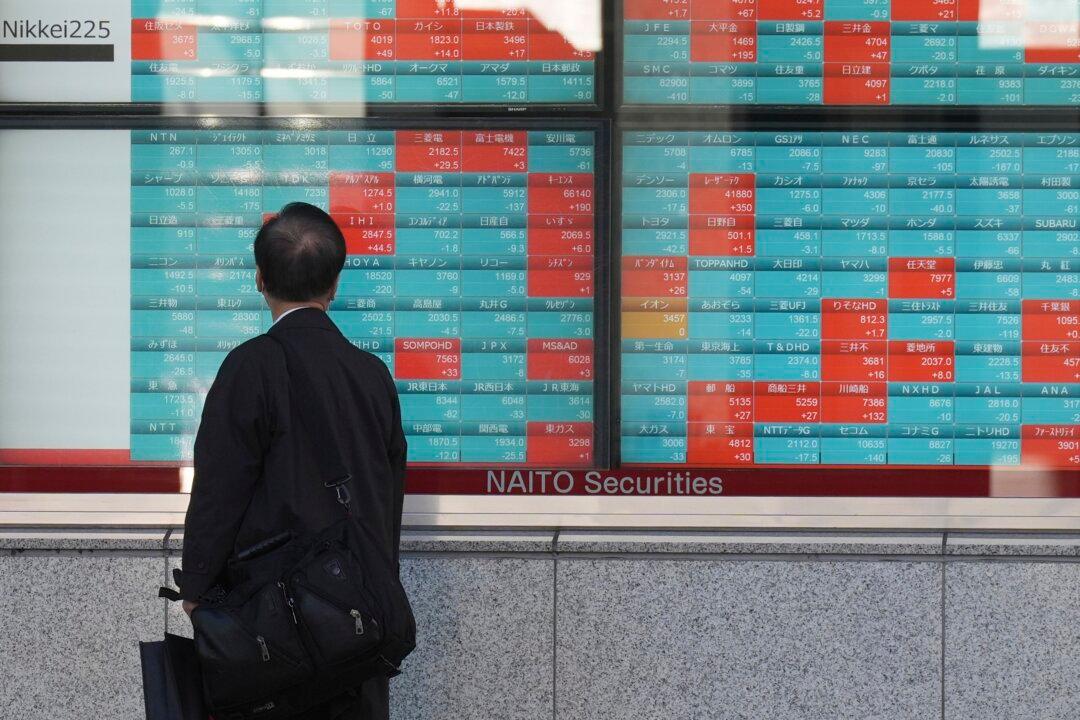BANGKOK—World shares were mixed on Thursday after Wall Street fell to its worst loss since September as the Federal Reserve indicated cuts to interest rates are not imminent.
Germany’s DAX slipped 0.3 percent to 16,857.43 and the CAC 40 in Paris sank 0.8 percent to 7,594.59. Britain’s FTSE 100 gave up 0.4 percent to 7,658.84.





